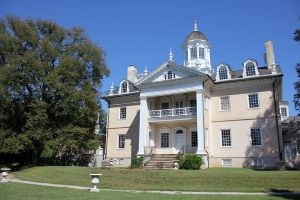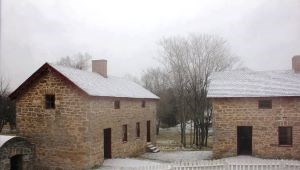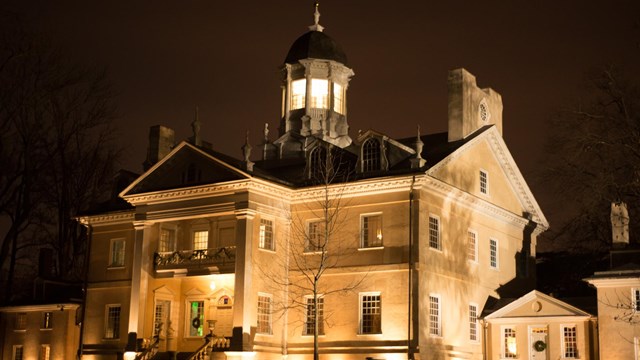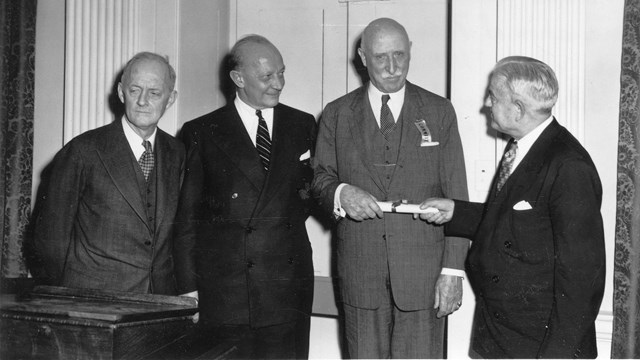|
Hampton is significant for its architectural features, and was the first and still the only site to be preserved by the National Park Service based on architectural merit. Architecture can tell us a lot about a nation and its people, as well as changes in culture, society, and trends over time. A view of Hampton's landscape and structures is a lens that can be used to understand the evolution of architecture in America, as well as the purpose of the structures in everyday life on the Hampton estate. 
NPS Photo / Amanda Zimmerman The buildings at Hampton showcase a fusion of classic European architecural styles and American design concepts, which makes many of the structures on the site so distinctive. The mansion is a grand example of American Georgian architecture and is defined by its symmetrical five-part design and classical details. It may have been of the largest private home in the country upon its completion in 1790. Hampton's Lower Farm includes the Lower or Overseer's House, begun in 1745 and expanded over two centuries, with buildings that were built between the 1840's and 1860's. These later structures fused aesthetics with agricultural purposes, and include original slave quarters, dairy, and barns. Today, all of the structures on the site serve as survivors of the past and are used to better understand Hampton as a place where a varied group of people lived and worked. 
NPS Photo / Amanda Zimmerman In 1948, Hampton became the first site to be preserved by the National Park Service based on its architectural merit rather than its connection to a significant person, place, or event in American history. The effort to preserve Hampton was headed by David Finley, director of the National Gallery of Art, and several other preservationists in Washington, D.C. Hampton's preservation marked an important milestone in the historic preservation movement in America and resulted in the founding of the National Trust for Historic Preservation. Today, the National Park Service continues to preserve the site and the historic structures that help to tell its story. 
Mansion Architecture
A look at the architecture of the Hampton mansion. 
Hampton Preserved
Learn how Hampton's unique architecture led to its preservation. |
Last updated: June 12, 2024
